Description
ABSTRACT
Can an Action In Rem be Validly Commenced Without the Relevant Vessel being A Party to the Suit? A Commentary on K. Maertsch & Ors v Biswa
Dr. Chuwuechefu Ukattah*
Factual Matrix
The plaintiff at the lower court (respondent in the appeal) commenced his action by a writ of summons and claimed the sum of N9,000,000 as damages for destruction of his fishing nets by the vessel, MV Walvis 7. The lower court, based on the respondent’s motion ex parte dated 17 August 2001 made an order on the same date by which the vessel was arrested. In response, the appellants applied by a motion on notice for an order to discharge or set aside the order of arrest. The Court ordered the release of the vessel subject to the provision of a bond insured by a member of the Protection and Indemnity (P&I) Group. The appellants subsequently applied by a motion on notice dated 18 March 2002 for an order striking out the suit on the ground that it was incompetent, an order setting aside the purported order of arrest of the vessel on the ground that the court lacked the jurisdiction to make the order given the nature of the action and an order discharging the bond. The said application was struck out by the court. A similar application was subsequently filed by the appellants and same was dismissed by the trial court. The lower court in its ruling dismissing the appellants’ motion suo motu directed the respondent to amend its processes in order to join the vessel as a party to the suit.
The appellants, being dissatisfied with the decision, filed a notice of appeal wherein they raised the issues, amongst others, whether having regard to the finding and acceptance by the learned trial judge that the respondent’s substantive suit was not validly commenced as an admiralty action in rem, the trial court was wrong when it declined to strike out the suit and also whether having found and accepted that the vessel was not a party to the substantive suit when the order of arrest of the vessel was made, the trial court was wrong when it declined to set aside the order of arrest and discharge the bond. The appellants’ principal argument was that the action was commenced as an action in rem but the vessel was not named as a party to the suit and the writ of summons was not accompanied by the statement of the claim contrary to the provisions of Order II r 2 of the Admiralty Jurisdiction Procedure Rules (AJPR) 1993. The appellants’ contention was that the failure to commence the suit in the lower court in strict compliance with the provisions of section 5(3) and (4) of the Admiralty Jurisdiction Act (AJA) 1991, Order 4 rule 2 and Order 2 rule 2(1) AJPR 1993 was fatal to the competence of the suit. The respondent contended, inter alia, that he had a sustainable claim against the named defendants and to strike out the suit would amount to denying him access to the courts which is his constitutionally guaranteed right. He further opined that the non-joinder of the vessel as a party to the suit and the non-filing of the statement of claim with the writ were procedural irregularities which had been taken care of by Order XVII rules 1 and 2 of the AJPR 1993.
* Ph.D. in Shipping Law (Cape Town), LL.M in Shipping Law with distinction (Cape Town). Senior Associate, Olaniwun Ajayi LP.

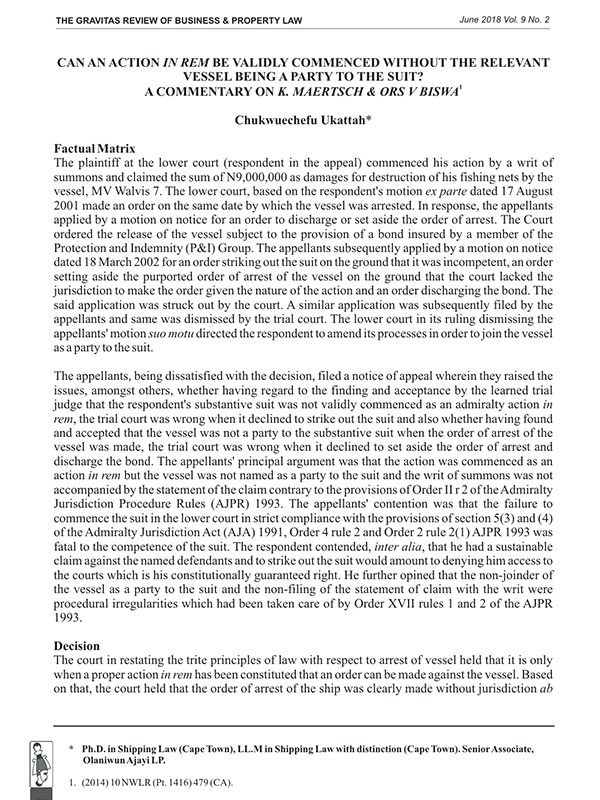
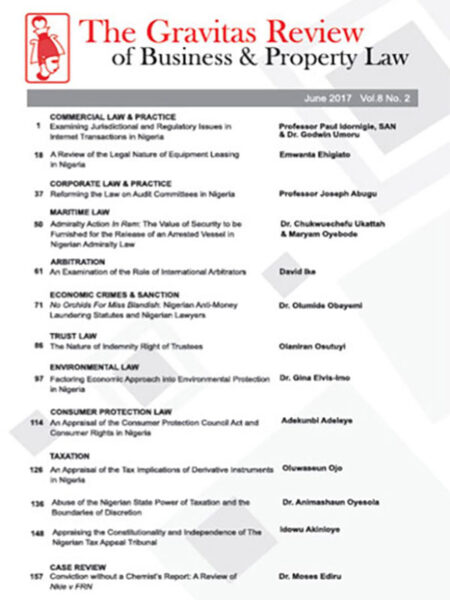
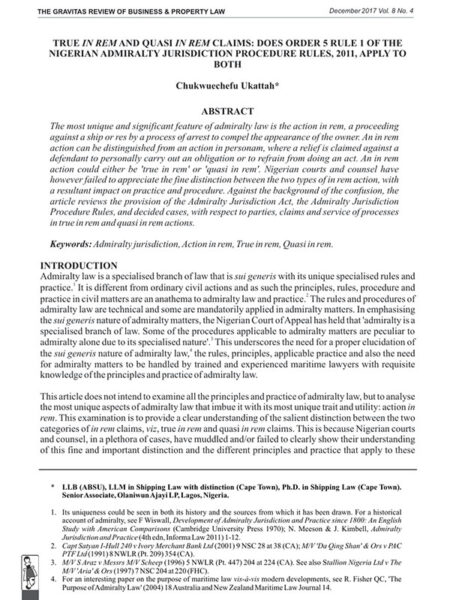
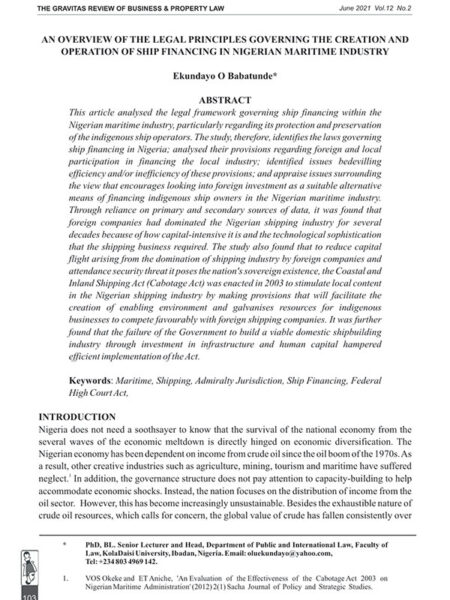
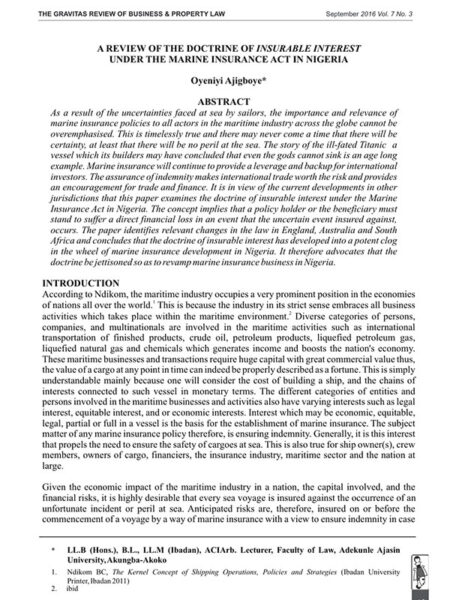


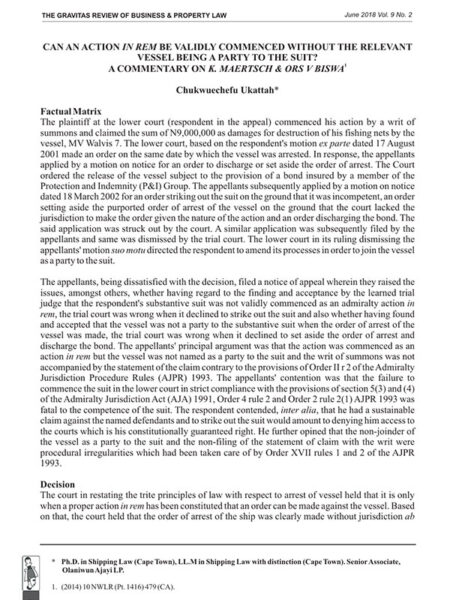
Reviews
There are no reviews yet.